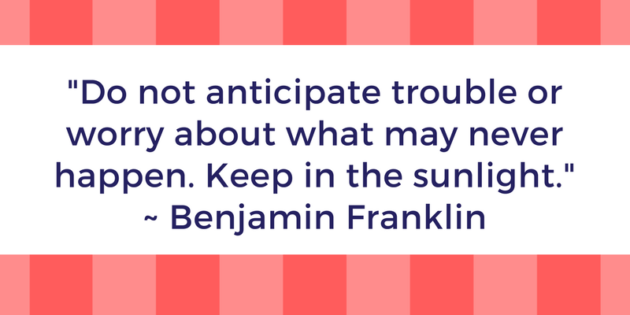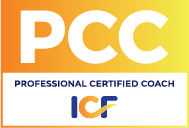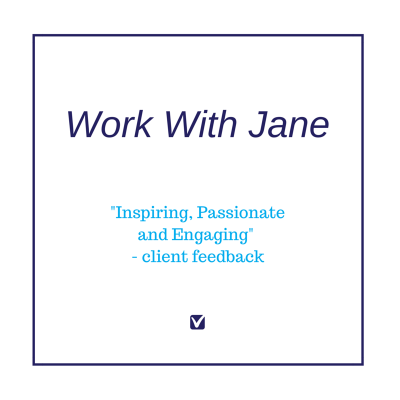The past couple of weeks, I have been talking a lot about stress. So today, I wanted to write a post on it. Let’s get started…
What is Stress?
There are many definitions of stress including –
- “pressure or tension exerted on a material object” and “a state of mental or emotional strain or tension resulting from adverse or demanding circumstances.” ~ Google
- “a physical, chemical, or emotional factor that causes bodily or mental tension and may be a factor in disease causation” ~ Merriam Webster
- “A state of mental or emotional strain or tension resulting from adverse or demanding circumstances.” ~ Oxford Dictionaries
- “In a medical or biological context stress is a physical, mental, or emotional factor that causes bodily or mental tension.” ~ MedicineNet.com
- “non-specific response of the body to any demand for change.” and “the rate of wear and tear on the body.” ~ Hans Selye
Classifications of Stress
Stress is subjective, so something that is stressful for you may not be stressful for someone else. There are many different kinds of stress and not all of them are bad. Stress can help you act quickly in an emergency or help you meet a deadline. Stress management can be confusing as each kind of stress has its own characteristics, symptoms, duration and treatment approaches.
Following are three different classifications of stress – Hans Selye, Karl Albrecht, and Lyle Miller and Alma Smith,
1. Hans Selye – Four Main Areas of Stress
The famous Austrian-born Hungarian endocrinologist Hans Selye, who was the pioneer of modern day stress research identified four main areas of stress –
- Eustress – positive stress that motivates you into action to meet challenges;
- Understress – associated with boredom, lack of direction and ‘rustout’;
- Overstress – going beyond your limits (i.e. burnout); and
- Distress – linked to unresolved emotions and feelings.
2. Karl Albrecht
In the ground breaking book ‘Stress and the Manager’ by Dr Karl Albrecht classified four general categories of self-induced emotional stress. They were –
- Time Stress – a stress/anxiety reaction to the concept of time (i.e. meeting a deadline or a sense that time is running out);
- Anticipatory Stress – commonly known as “worrying” about an impending event in the future;
- Situational Stress – finding yourself in a situation that is out of your control (i.e. expecting something terrible to happen);
- Encounter Stress – stress/anxiety about dealing with one or more people whom you find challenging or unpleasant.
3. Lyle Miller and Alma Smith – Four Kinds of Stress
In the book, The Stress Solution, Lyle Miller and Alma Smith refer to the following four kinds of stress –
- Acute Stress – most common form of stress and comes from demands and pressures of the recent past and anticipated demands or pressures of the near future. Acute stress is generally short-term, is recognised by most people and can be thrilling and exciting as well as exhausting. Some examples of acute stress include – losing an important contract, rushing to meet a deadline, riding a roller coaster, locking yourself out of the house or a car hitting rear-ending you.
- Episodic Acute Stress – when acute stress happens frequently, it is called episodic acute stress. People who always seem to be living in chaos, rushing or having a crisis tend to have episodic acute stress. People with episodic acute stress are often short-tempered, irritable, and anxious.
- Chronic Stress – when acute stress is not resolved and begins to increase or lasts for long periods of time, it becomes chronic stress. Chronic stress can stem from poverty, a dysfunctional family or relationship as well as an unfulfilling job, career or business. Chronic stress can be detrimental to your health, as it can contribute to several serious diseases or health risks, such as – heart disease, cancer, lung disease, violence and accidents.
- Traumatic Stress – overpowering trauma can cause chronic stress know as Posttraumatic Stress Disorder (PTSD). Some examples include accidents, verbal, physical and psychological abuse, being in the presence of extreme violence and natural disasters can cause chronic stress know as Posttraumatic Stress Disorder (PTSD).
Causes of Stress – Stressors
Causes of stress are often referred to as stressors. Stressors can be a thing, person or situation. There can be many stressors in life, including –
- Your Body – for example: ageing, diet, exercise, injuries, illness, puberty and menopause;
- Your Environment – for example: pollution, weather, noise, traffic and chemicals;
- Your Finances – for example: income, insurances and superannuation;
- Your Job – for example: boss, colleagues, deadlines, expectations, job security and long hours;
- Your Mind – for example: beliefs, expectations, memories, perceptions, thoughts and values;
- Your Relationships – for example: colleagues, business, family, friends, partner and spouse; and
- Major or Critical Incidents – for example: accidents, death, divorce and emergencies.
Managing Stress
As indicated above, stress is subjective and therefore affects each person differently. Some people may get headaches or stomach aches, while others may lose sleep or get depressed or angry. People under constant stress can also get sick a lot. Managing stress is important for staying healthy, happy and well.
It’s impossible to completely get rid of stress (remember some stress is good for you!). However, the goal of to manage stress. Stress management is about identifying the type of stress (i.e. characteristics, symptoms and duration) and then put in place an action plan to manage the stress. The great news is that it can be managed!
Over to You…
I hope this has given you some insight in to “what is stress”, some classifications of stress, causes of stress and managing stress. If you have any questions or comments, feel free to share them below.
If you are ready to reclaim your courage and take the next step towards freedom and living whole-heartedly, why not join our Toolkit?
References –
Albrecht, K. (1979). Stress and the Manager. New York, USA: Touchstone Books.
Miller, L., & Smith, A. (1993). The Stress Solution – An Action Plan to Manage the Stress in Your Life. New York, USA: Pocket Books.

















Leave A Response